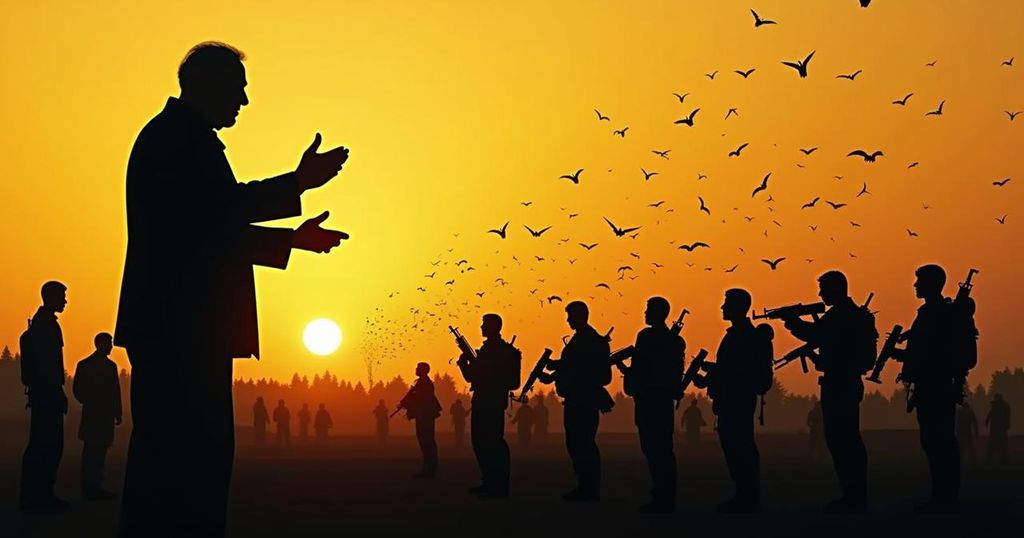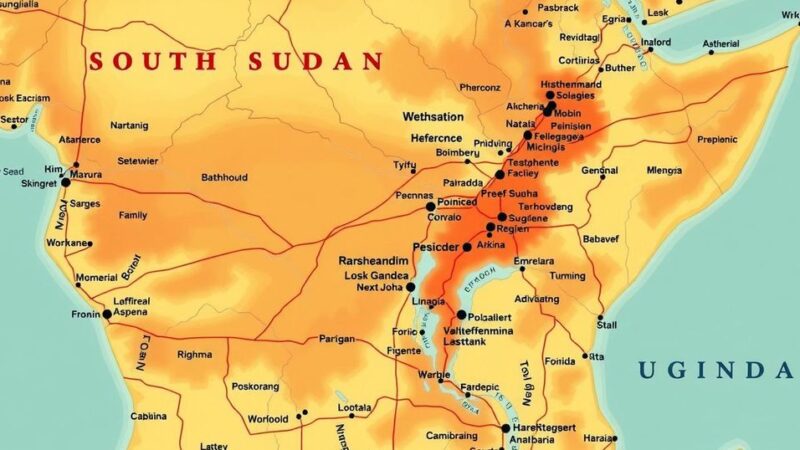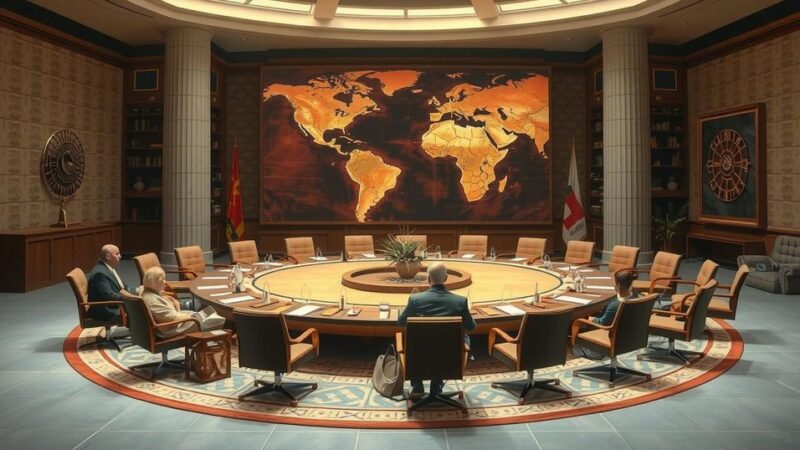During the United Nations General Assembly, Israeli Prime Minister Benjamin Netanyahu stated that Israel will continue military operations against Hezbollah until its objectives are achieved. He faced significant criticism from leaders of various nations regarding violence in the Middle East, while reaffirming Israel’s right to defend itself amid ongoing conflicts with Hamas and Hezbollah. Netayahu’s remarks coincided with escalated hostilities following Israel’s strikes in Lebanon, amidst calls for a ceasefire and negotiations for peace.
During his address at the United Nations General Assembly, Israeli Prime Minister Benjamin Netanyahu affirmed Israel’s intent to continue its military operations against Hezbollah until its strategic objectives are accomplished. Netanyahu expressed that his presence at the U.N. was necessitated by the need to counter what he described as “lies and slanders” directed at Israel. Amidst escalating violence in the Middle East, leaders from various nations, including Slovenia, Barbados, and Pakistan, criticized the violence and called for a resolution to the conflicts. In his remarks, Netanyahu underscored Israel’s resolve to degrade Hezbollah’s capabilities, emphasizing that the nation possesses the right to defend itself and ensure the safety of its citizens. He remarked, “We will continue degrading Hezbollah until all our objectives are met,” drawing applause from supportive attendees. Netanyahu’s address coincided with recent ISIS strikes on Hezbollah positions in Lebanon, and he noted that discussions were ongoing regarding a potential ceasefire, although Hezbollah had not responded positively to cessation proposals. Netanyahu criticized Iran for exacerbating instability in the region, asserting that if Iran were to attack Israel, it would face retaliation. He pointed out Israel’s successful efforts against Hamas in Gaza, where extensive military operations have resulted in significant casualties, particularly among Palestinian civilians. He contended that the continuation of the conflict rests on Hamas’s unwillingness to surrender and release hostages, stating, “This war can come to an end now… But if they don’t… we will fight until we achieve total victory. Total victory. There is no substitute for it.” However, netanyahu faced backlash as many delegates protested against his speech, expressing solidarity with Palestinian casualties and calling for an end to hostilities. Leaders preceding him spoke out forcefully against Israel’s actions, highlighting the humanitarian crises unfolding in Gaza and Lebanon. In light of this dynamic, Netanyahu’s speech is viewed as both a reaffirmation of Israel’s military stance and an illustration of the deepening rifts among international leaders regarding the ongoing violence in the region.
The context of Prime Minister Benjamin Netanyahu’s address at the United Nations General Assembly is framed by the ongoing and intensifying conflicts in the Middle East, particularly involving Israel’s military actions against Hezbollah and its response to Hamas in Gaza. In recent months, these conflicts have escalated significantly, with Israel conducting extensive military operations aimed at degrading the capabilities of these groups. The humanitarian toll, especially on Palestinian civilians in Gaza, has become a focal point for international scrutiny and criticism, prompting calls for ceasefires and resolutions from other world leaders. Netanyahu’s speech highlights Israel’s perspective on its right to self-defense, countering narratives that criticize its military actions.
In conclusion, Prime Minister Benjamin Netanyahu’s address at the United Nations General Assembly signals Israel’s steadfast commitment to its military objectives against Hezbollah, amidst criticism from multiple international leaders regarding the ongoing violence in the Middle East. His rhetoric illustrates the complex narratives surrounding national defense, humanitarian concerns, and the broader geopolitical implications of these conflicts. The reactions to his speech reflect a deepening divide among nations regarding accountability and strategy in addressing the challenges faced by Israel and its neighbors.
Original Source: apnews.com






